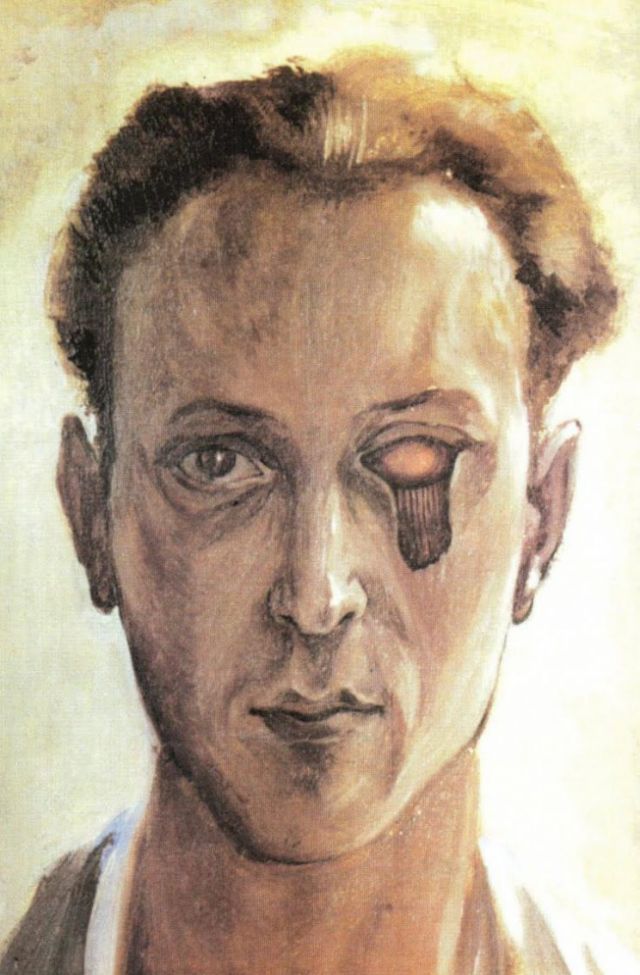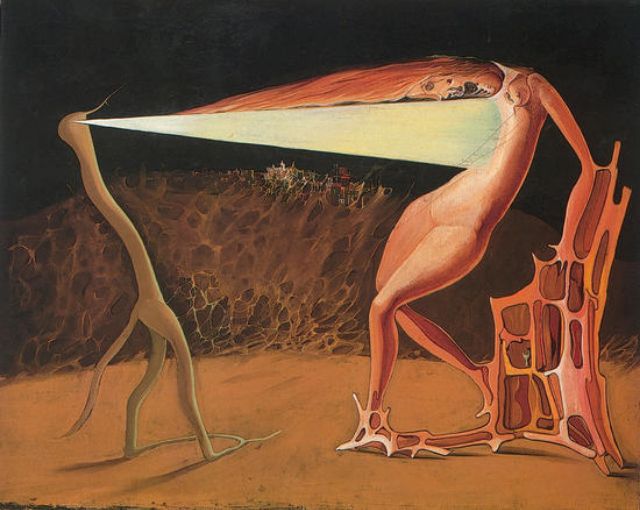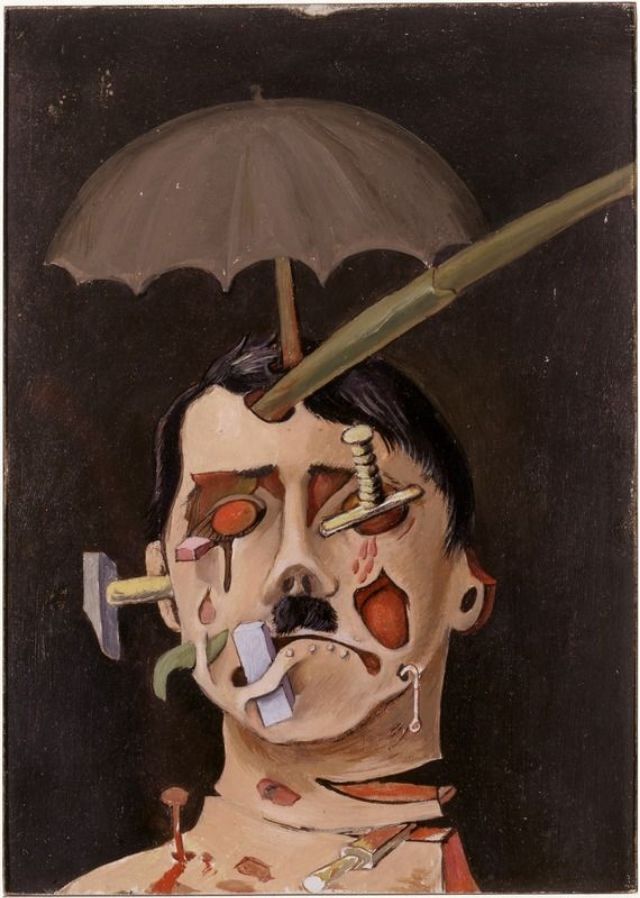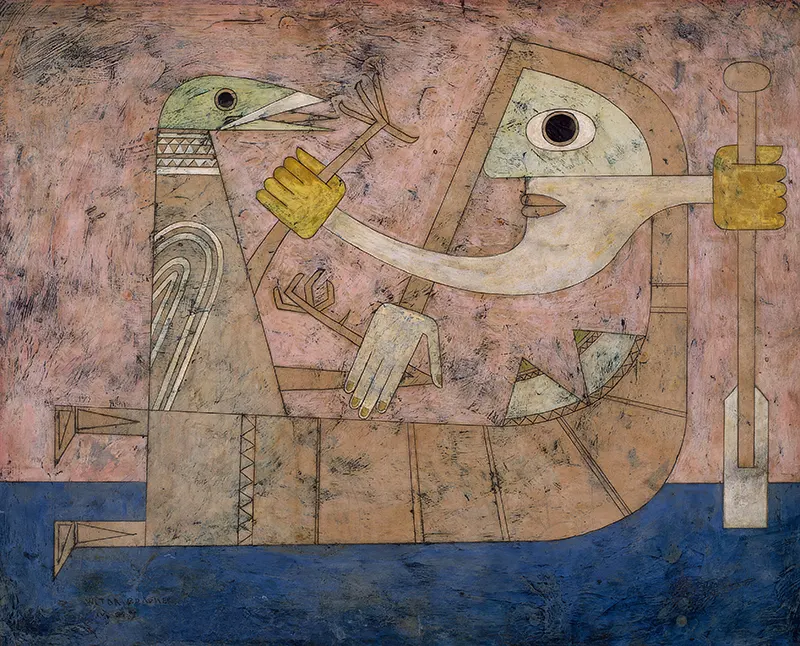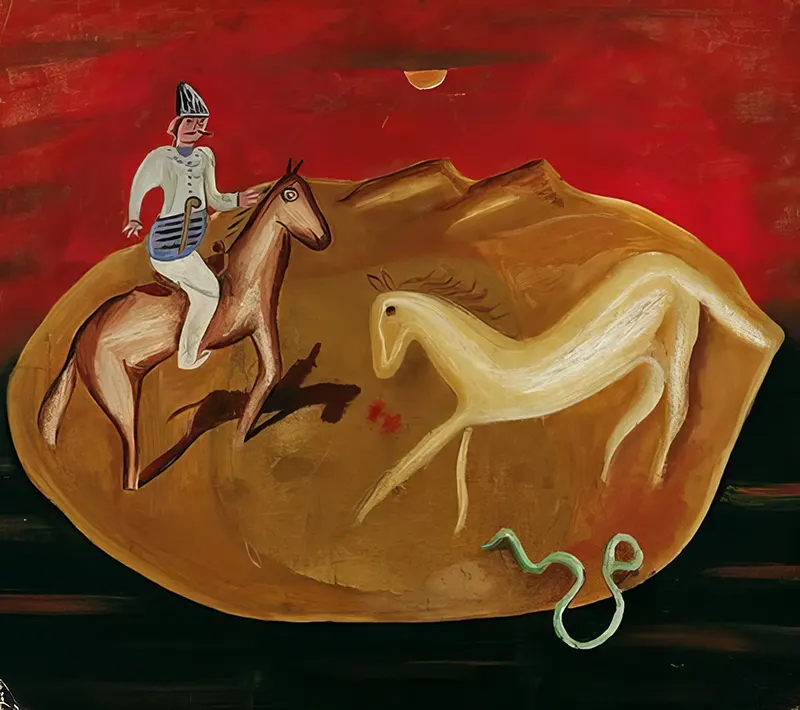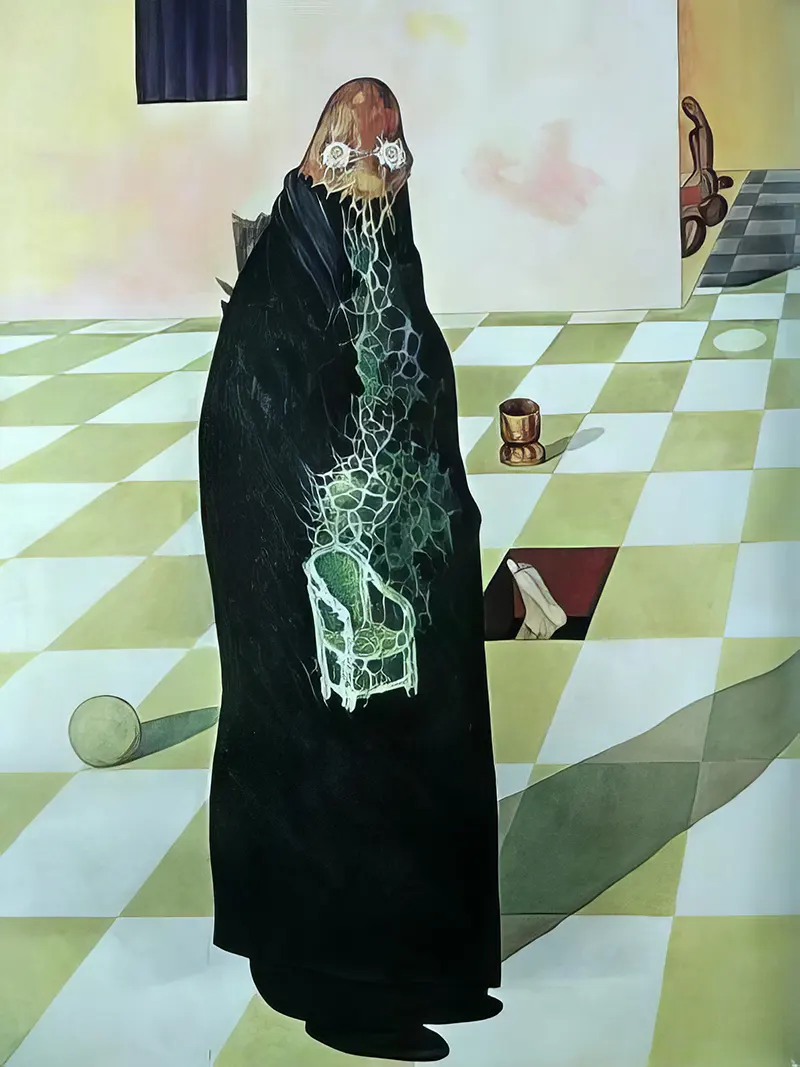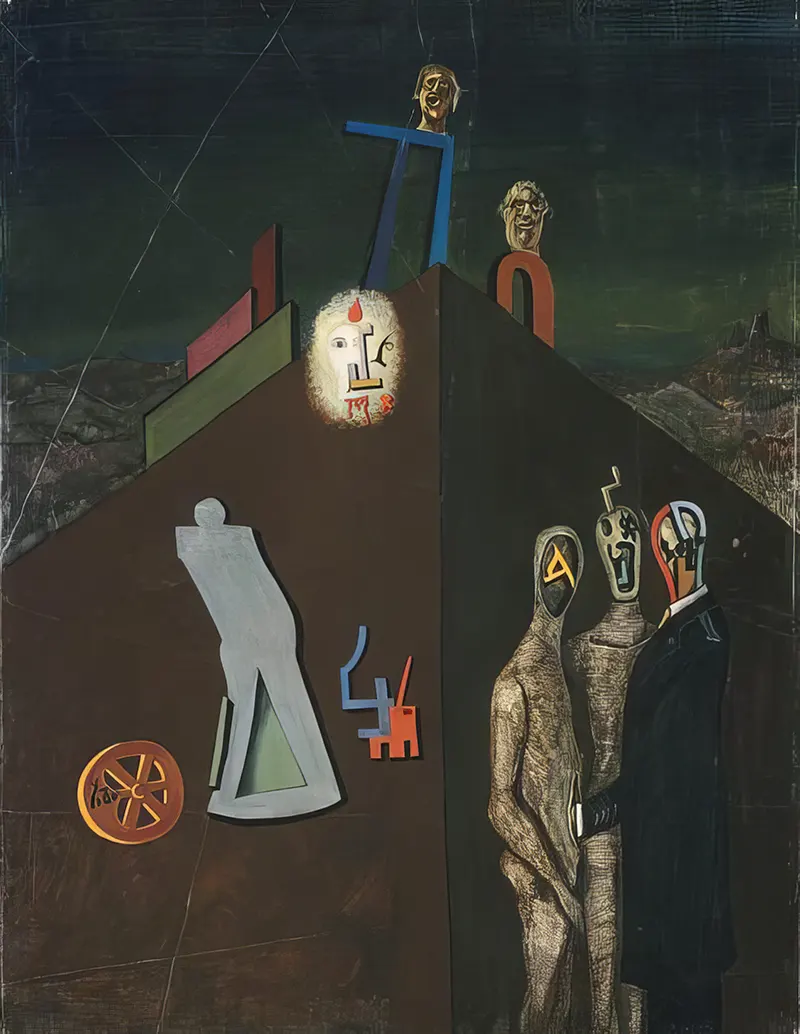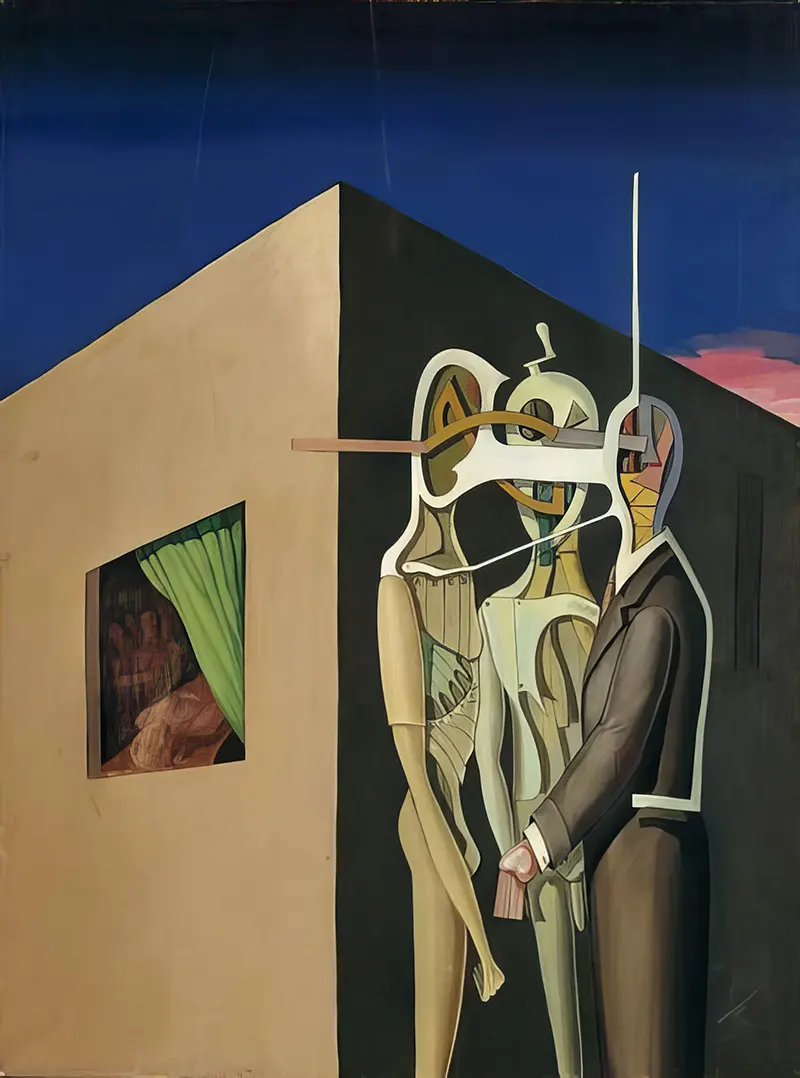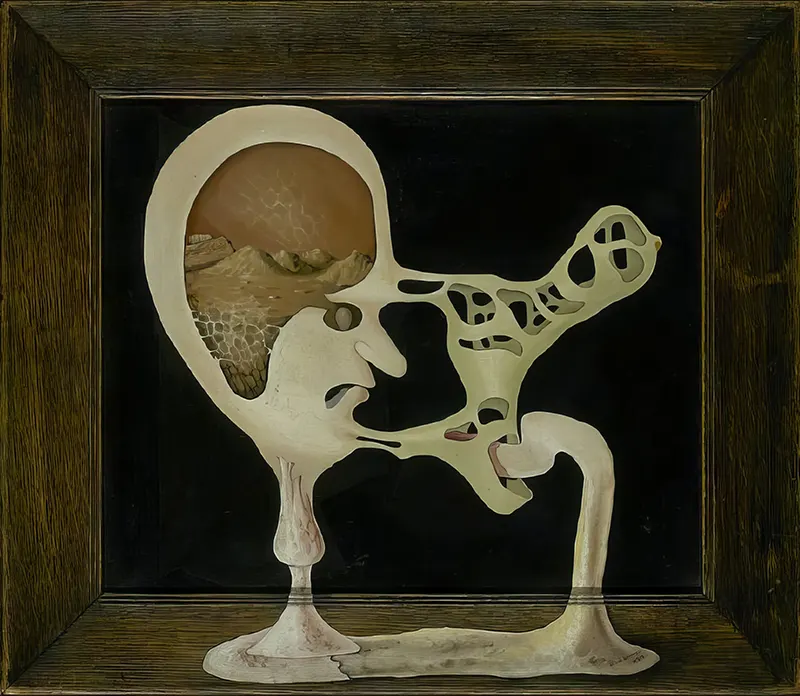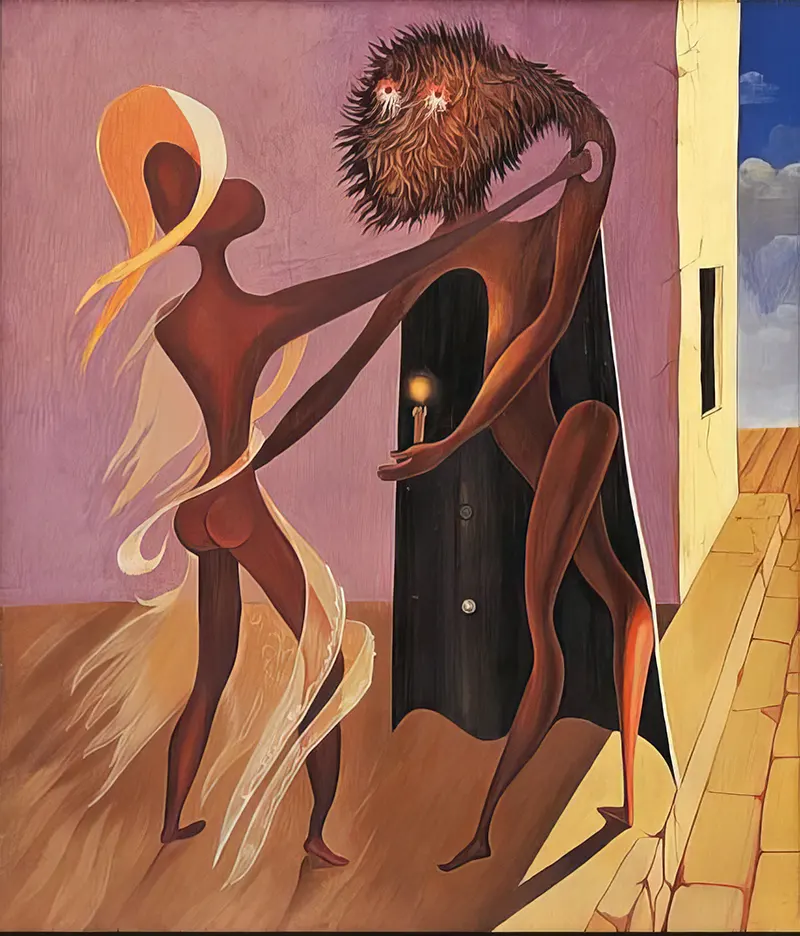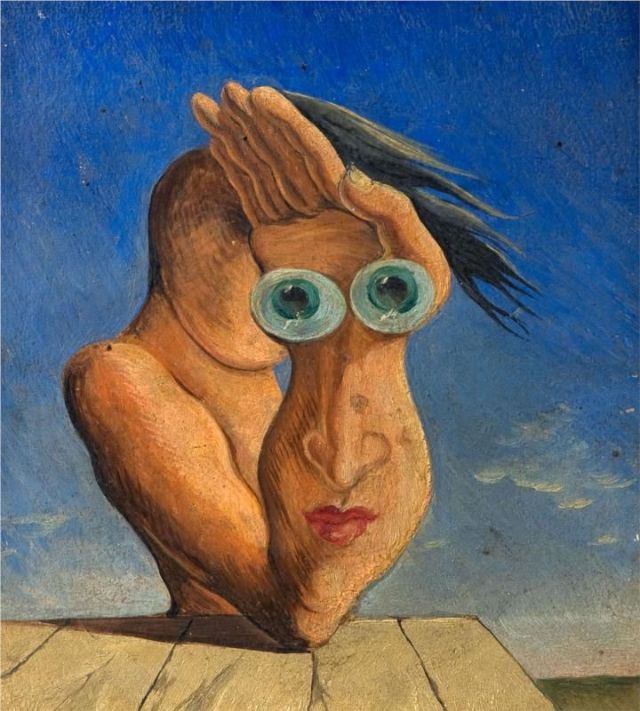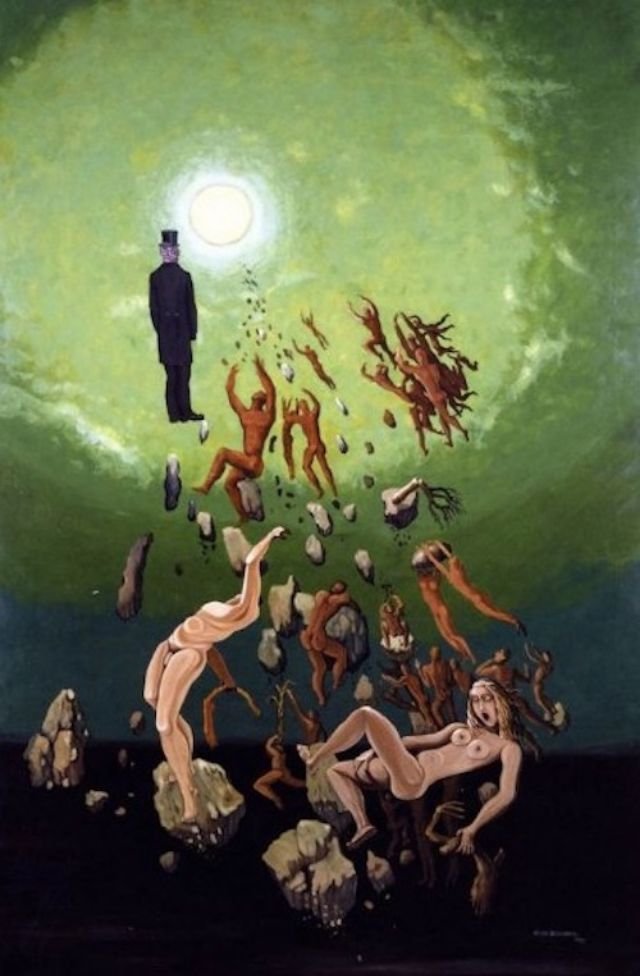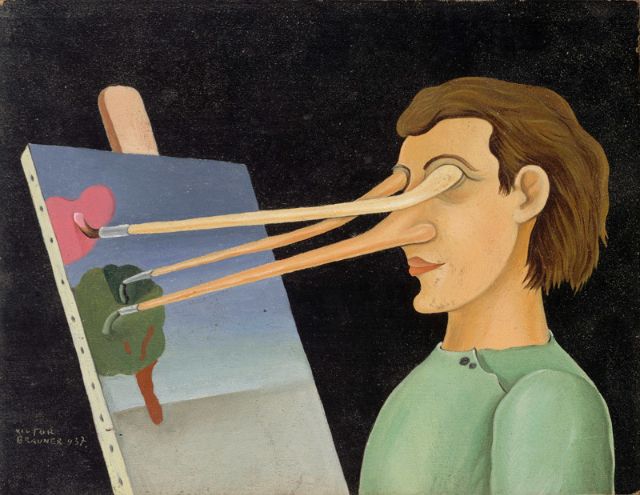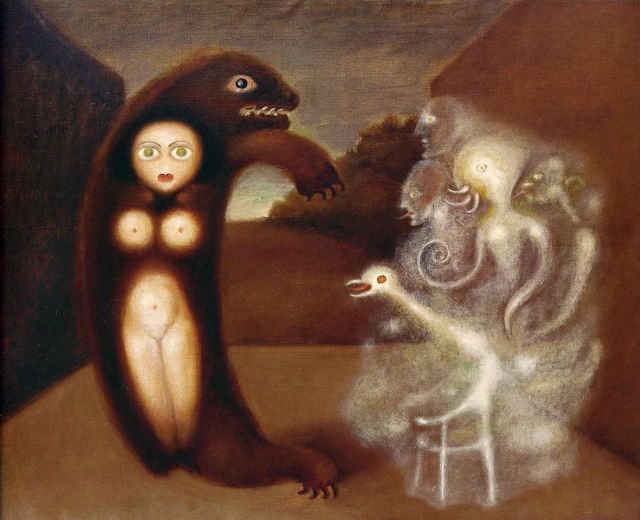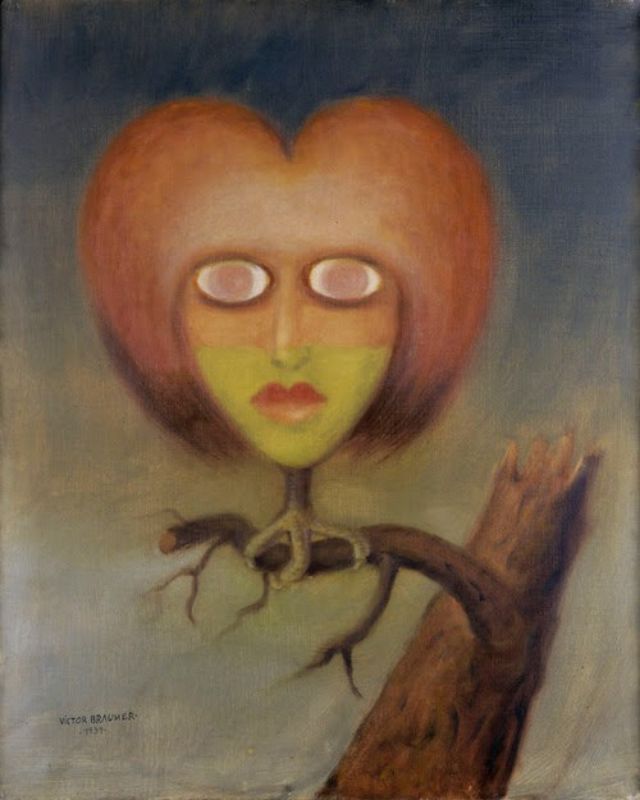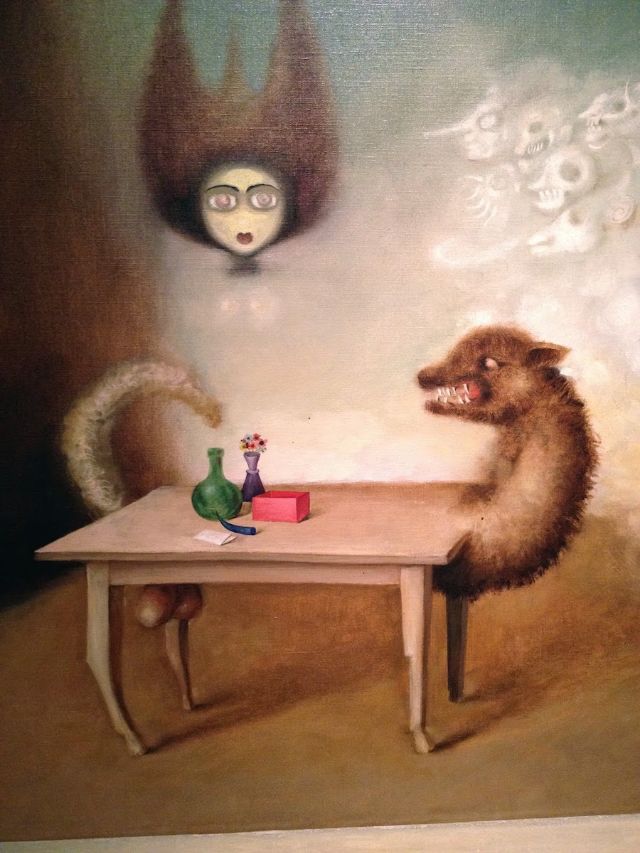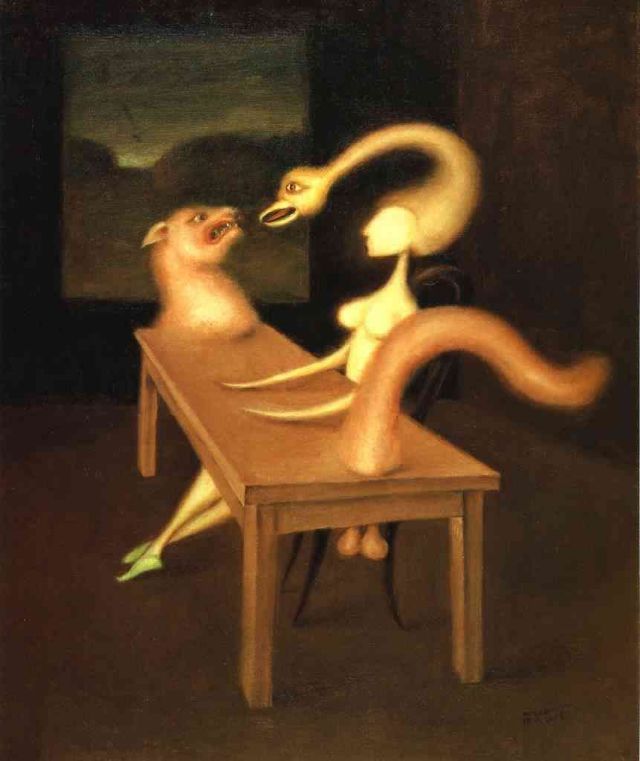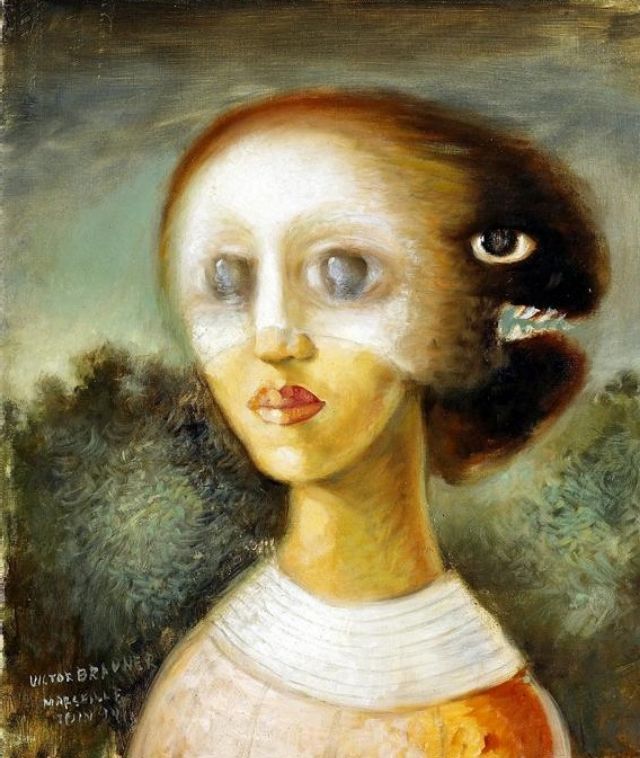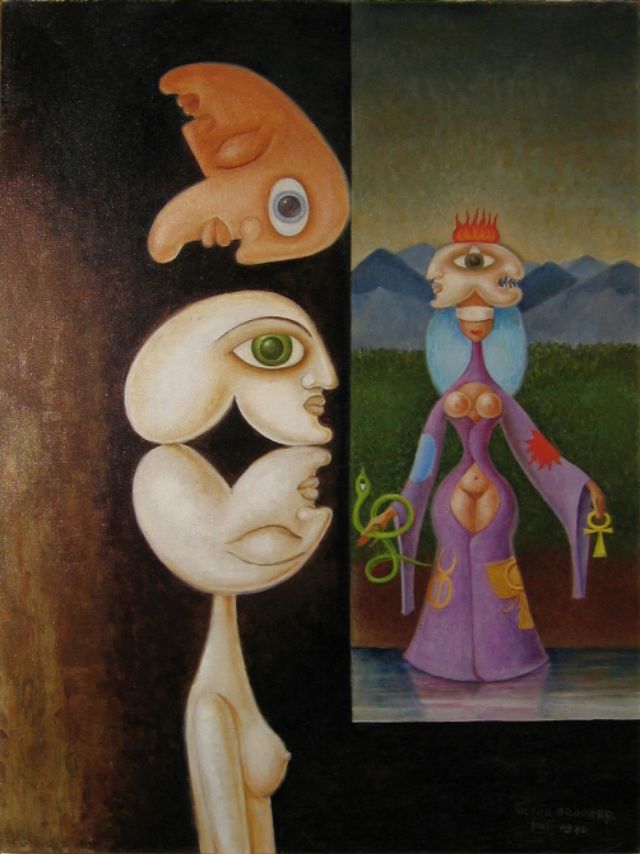Born in Romania in the early 1900s, Brauner’s journey took an interesting turn in 1930 when he, like many others, sought refuge from the rising tide of Fascism in his homeland and landed in the vibrant artistic hub of Paris. It was in the midst of the City of Lights that he crossed paths with Yves Tanguy and became part of the surrealist group. His paintings from the 1930s are a surrealist tour-de-force, articulating a style that was very influential on later painters. One notable piece is “The Indicator of Space” from 1934. Picture this: a strange robot-looking thing, covered in a green cloth, confidently pointing somewhere. But the painting is more than meets the eye; it’s like a puzzle. There’s a hole in the checkerboard ground showing a mysterious foot, a tiny ball in the pavement pattern, and a mysterious figure behind a wall. Another cool one from the same time is “Kabyline in Movement,” with similar ideas. Brauner creates an image that makes you think, balancing clear pictures with no clear story. This puzzling, interesting way of showing things became a big part of surrealism, and Brauner was right in the middle of it. Probably his best-known painting The Surrealist of 1947, depicts the surrealist as the Magician card from the Tarot. He stands at his magical table which is in the form of a stylised dragonfly. From the 1950s Brauner shifted a little away from his high surrealism and began working more with drawing on paper, encaustic, and thin oil paint on boards. These are flat stylised figures often becoming more abstract. Victor Brauner, though now little known, was undoubtedly one of the major figures of Surrealism. His output in the 1930s and 1940s was very influential on later painters. Right before World War II started, Brauner ended up in Switzerland. He chose not to reapply for citizenship, a new rule for all Jews in France. It turned out to be a smart move, especially since Brauner had painted a really unflattering picture of Hitler in 1934. After the war, he went back to Paris and kept on working until he passed away in 1966. Images of Brauner’s work including an odd piece of taxidermy he created in 1939 called “Loup-table” (or “Wolf-Table”) inspired by two of his paintings done the same year, “Fascination” and “Psychological Space” depicting an angry wolf incorporated into a table. (Photo credit: Surrealism by WS / Dangerous Mind / MOMA / Wikimedia Commons). Notify me of new posts by email.
Δ Subscribe

